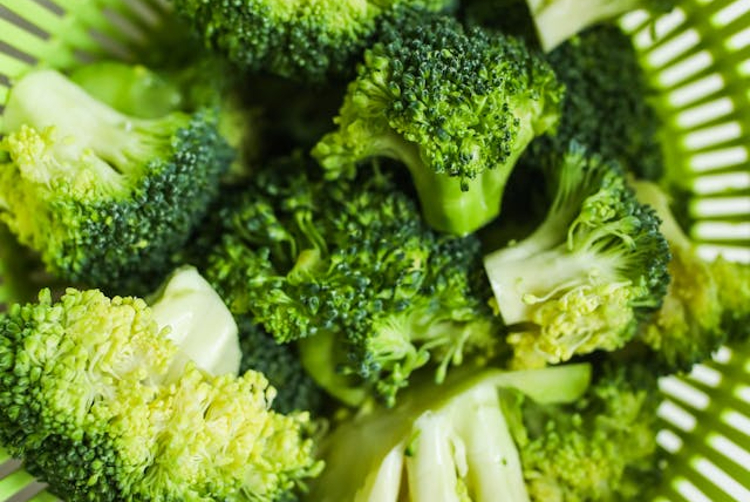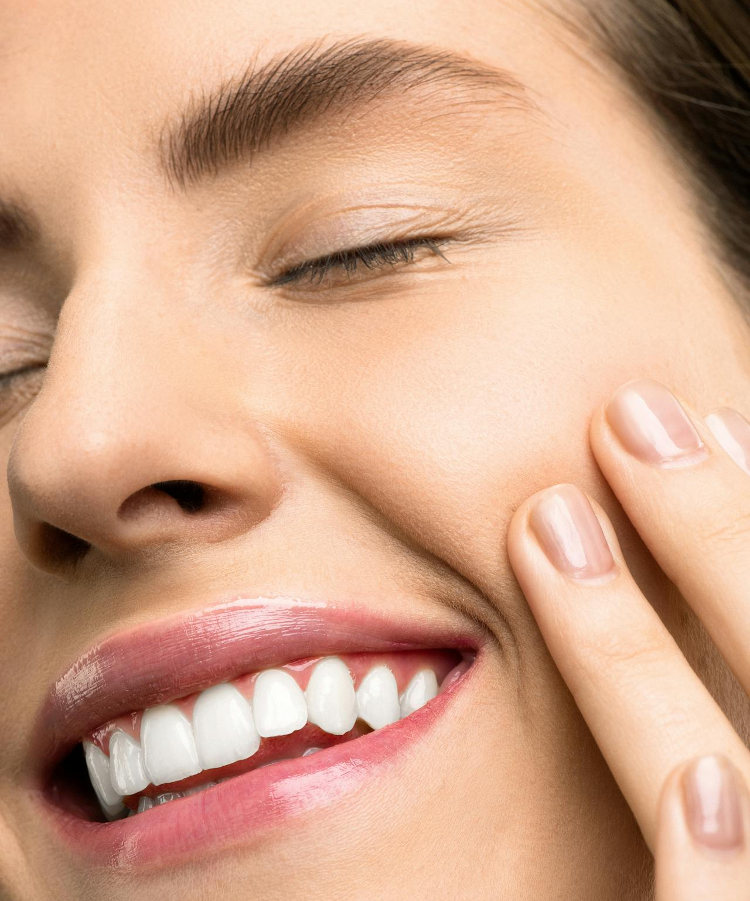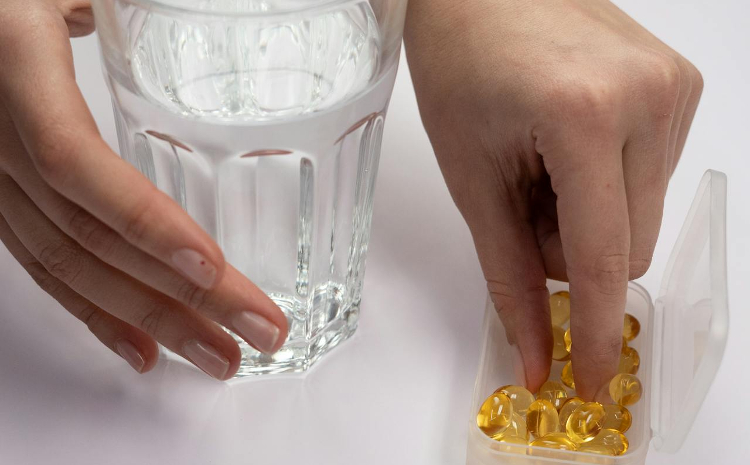What vitamin deficiency causes yellow teeth? It’s a question I get in my inbox multiple times a month and when I noticed my own teeth starting to lose their bright, white luster I began looking into the significant role that vitamins play in maintaining our dental health.
->-> Click Here For The Kardashian’s White Smile Secret <- <-
From childhood, we’re told to brush and floss regularly, but rarely do we hear about the impact of our diet and vitamin intake on our teeth. Today, I want to get into how certain vitamin deficiencies might be contributing to those unwanted yellow stains on our teeth and what we can do about it.

Understanding Teeth Discoloration
Common Causes of Teeth Discoloration
Poor Oral Hygiene – I’ve noticed that when I slack on my brushing and flossing routine, my teeth start to look dull and stained. Poor oral hygiene leads to plaque buildup, which can cause yellowing and even cavities if not addressed promptly.
Smoking and Tobacco Use – I have a friend who used to smoke heavily. Over the years, his teeth became noticeably yellow. Smoking and tobacco use introduce tar and nicotine into the mouth, which can stain teeth and make them appear yellow or brown.
Dietary Habits – I love my coffee, but I’ve realized it can take a toll on my teeth. Drinks like coffee, tea, and red wine, as well as certain foods, can stain teeth. Consuming these frequently without proper dental care can lead to discoloration.
Plaque Buildup – Plaque is a sticky film of bacteria that forms on teeth. If not removed through brushing and flossing, it can harden into tartar, which can cause teeth to appear yellow.
Enamel Erosion – Over time, the enamel on our teeth can wear away, exposing the yellowish dentin underneath. Acidic foods and drinks, grinding teeth, and even certain medical conditions can contribute to enamel erosion. I make sure to avoid overly acidic foods and use toothpaste designed to protect enamel.
->-> Click Here For The Kardashian’s White Smile Secret <- <-

Types of Teeth Discoloration
Extrinsic Discoloration This type of discoloration affects the outer layer of the tooth, or enamel. It’s often caused by external factors like smoking, certain foods and drinks, and poor oral hygiene. For example, when I used to drink a lot of black tea, I noticed my teeth became more stained on the surface.
Intrinsic Discoloration Intrinsic discoloration occurs within the tooth itself. This can be due to factors like certain medications, trauma to the tooth, or excessive fluoride during childhood. It’s harder to treat than extrinsic discoloration. A friend of mine had intrinsic discoloration from antibiotics he took as a child, and he had to undergo professional whitening treatments to see any improvement.
The Role of Vitamins in Dental Health
Essential Vitamins for Healthy Teeth
Vitamin A – I try to make sure to get enough Vitamin A because it’s crucial for maintaining healthy gums. It helps in the production of saliva, which is essential for keeping our mouths clean. Foods rich in Vitamin A, like carrots and sweet potatoes, are a regular part of my diet.
Vitamin C – For me, ensuring adequate Vitamin C intake is non-negotiable. This vitamin strengthens blood vessels and reduces inflammation, which helps prevent gum disease. I love starting my day with a glass of orange juice or adding bell peppers to my meals to boost my Vitamin C intake.
Vitamin D – Vitamin D is vital for calcium absorption, and I always make it a point to get enough sunlight or take supplements. Without enough Vitamin D, our teeth can become weak and more prone to discoloration and decay. I also include Vitamin D-rich foods like fatty fish and fortified dairy products in my diet.
Calcium – Growing up, my parents always emphasized the importance of drinking milk for strong teeth and bones. Calcium helps in the formation and maintenance of teeth and bones. These days, I ensure I get enough calcium from plant-based sources like soy yogurt and leafy green vegetables.
Iron Iron is another important mineral for dental health. It prevents anemia, which can cause oral health issues like sores and inflammation. I include iron-rich foods such as spinach, broccoli, and beans in my diet to maintain my iron levels.
->-> Click Here For The Kardashian’s White Smile Secret <- <-

How Vitamins Affect Tooth Color
Impact of Vitamin Deficiencies on Tooth Enamel and Overall Health When our bodies lack essential vitamins, it can directly affect our dental health. For instance, a Vitamin D deficiency can lead to enamel hypoplasia, where the enamel doesn’t form properly, making teeth more susceptible to staining and decay. I once experienced minor enamel issues due to a lack of Vitamin D, which improved significantly after adjusting my diet and supplement intake.
Examples of How Each Vitamin Contributes to Maintaining White Teeth
- Vitamin A: Helps in the production of saliva, which washes away food particles and bacteria, preventing discoloration.
- Vitamin C: Strengthens gums and prevents gum disease, reducing the risk of tooth loss and yellowing.
- Vitamin D: Aids in calcium absorption, ensuring strong and healthy teeth that are less prone to discoloration.
- Calcium: Directly contributes to the strength and health of teeth, preventing the yellowing associated with weakened enamel.
- Iron: Prevents anemia-related oral issues, keeping gums and teeth healthy.
Identifying Vitamin Deficiency-Related Discoloration
Symptoms of Vitamin Deficiencies
General Symptoms Personally, I’ve noticed that when I’m not getting enough vitamins, I feel more fatigued and my immune system seems weaker. General symptoms of vitamin deficiencies can include fatigue, weakness, and frequent illnesses. It’s a reminder to keep an eye on our overall health, not just our dental health.
Oral Health Symptoms For example, I started experiencing bleeding gums and increased tooth sensitivity when my Vitamin C intake was low. These are common oral health symptoms of vitamin deficiencies. Gum disease, tooth decay, and even mouth sores can indicate that your body is not getting enough essential vitamins.
Specific Vitamin Deficiencies and Yellow Teeth
Vitamin D Deficiency Vitamin D deficiency can lead to enamel hypoplasia, where the enamel does not form correctly, making teeth more prone to discoloration. I had a phase where my Vitamin D levels were quite low, and I noticed my teeth becoming more sensitive and slightly yellow. Once I increased my Vitamin D intake, the condition of my teeth improved.
Vitamin C Deficiency A lack of Vitamin C can lead to weakened gums and bleeding, which might cause teeth to appear yellow due to the underlying issues. If the diet lacks fruits and vegetables rich in Vitamin C, gums can be more prone to bleeding and infection.
Calcium Deficiency Calcium is crucial for maintaining strong teeth. When my diet was low in calcium, I experienced more dental issues, including yellowing teeth. Calcium deficiency can lead to weakened enamel, making teeth more susceptible to staining and decay.
->-> Click Here For The Kardashian’s White Smile Secret <- <-

Preventing and Treating Yellow Teeth Caused by Vitamin Deficiencies
Dietary Changes
Foods Rich in Essential Vitamins Over time, I’ve found that incorporating a variety of vitamin-rich foods into my diet has made a significant difference in my dental health. Foods like carrots and sweet potatoes are my go-to for Vitamin A, while citrus fruits and bell peppers boost my Vitamin C intake. Ensuring a well-rounded diet helps keep my teeth strong and less prone to discoloration.
Importance of a Balanced Diet for Dental Health For me, maintaining a balanced diet is not just about avoiding deficiencies, but also about promoting overall dental health. A diet rich in vitamins and minerals supports strong teeth and healthy gums, reducing the risk of discoloration. I always aim to include a variety of fruits, vegetables, proteins, and calcium enriched non-dairy products in my meals.
Supplements and Oral Health Products
Recommended Supplements for Preventing Deficiencies When my diet alone isn’t enough, I turn to supplements. For example, I take a daily multivitamin that includes Vitamin D and calcium to ensure I’m getting the necessary nutrients for my teeth. Vitamin C supplements are also handy, especially during winter months when fresh produce is less available.
Toothpastes and Mouthwashes with Added Vitamins I’ve recently started using toothpaste and mouthwash that contain added vitamins. These products can help reinforce the enamel and improve gum health. For instance, a toothpaste with added calcium and Vitamin D can help strengthen teeth and reduce yellowing.
Professional Dental Care
Regular Dental Check-Ups I make it a point to visit my dentist every six months. Regular check-ups help catch any potential issues early on. My dentist also gives me personalized advice on maintaining my dental health, which has been invaluable.
Professional Cleaning and Whitening Treatments For those persistent stains, professional cleaning and whitening treatments have been quite confidence boosting for me. I had my teeth professionally whitened last year, and the results were impressive. These treatments can remove deep stains that regular brushing can’t tackle, making your teeth look brighter and healthier.
->-> Click Here For The Kardashian’s White Smile Secret <- <-

Additional Tips for Maintaining White Teeth
Oral Hygiene Practices
Brushing and Flossing Techniques Brushing my teeth twice a day with the proper technique makes a world of difference. I use a soft-bristled toothbrush and fluoride toothpaste, brushing for at least two minutes each time. Flossing daily is also crucial. For example, I had a period when I wasn’t flossing regularly, and I noticed more plaque buildup and yellowing between my teeth.
Using Mouthwash Effectively Incorporating mouthwash into my routine has been beneficial too. I use an antibacterial mouthwash that helps reduce plaque and keeps my breath fresh. It’s especially useful after meals when brushing isn’t always possible. For me, a good mouthwash complements brushing and flossing perfectly.
Lifestyle Changes
Avoiding Tobacco Products I’ve never smoked, but I’ve seen the effects of tobacco on my friends’ teeth. Avoiding smoking and other tobacco products is one of the best decisions for dental health. Tobacco stains teeth and increases the risk of gum disease, making it a major contributor to yellow teeth.
Reducing Consumption of Staining Foods and Beverages While I love my coffee and red wine, I know they can stain my teeth. I’ve made a habit of drinking through a straw when possible and rinsing my mouth with water afterward. Limiting these beverages and brushing soon after consuming them helps keep my teeth whiter.
->-> Click Here For The Kardashian’s White Smile Secret <- <-

Conclusion: Brighten Your Smile with the Right Vitamins
Taking care of our teeth involves more than just brushing and flossing; it’s about nourishing our bodies with the right vitamins and minerals. By understanding how deficiencies in vitamins like D, C, and calcium can affect our dental health, we can make informed choices to keep our smiles bright and healthy. Regular dental check-ups, a balanced diet, and the right supplements all play crucial roles in maintaining those pearly whites.
Limited Special Offer:
Transform your dental health with $300 off ProDentim today, the revolutionary solution designed to enhance your oral hygiene and overall well-being. Packed with powerful probiotics and essential nutrients, ProDentim targets the root causes of dental issues, ensuring your teeth and gums stay strong and healthy. Say goodbye to cavities, bad breath, and gum disease, and embrace the confidence of a radiant smile. Don’t wait for dental problems to arise—take proactive steps today with ProDentim and invest in a brighter, healthier future for your mouth. Order now and experience the difference!
If you enjoyed this article then please share, subscribe and do the thang!
Thanks for reading!
The Very Berry Team 🙂
**Disclaimer:** The content provided on this page is for informational purposes only and is not intended as medical advice, diagnosis, or treatment. The author of this page is not a medical professional. Always seek the advice of your physician or other qualified health provider with any questions you may have regarding a medical condition. Never disregard professional medical advice or delay in seeking it because of something you have read on this page.
Leave a Reply